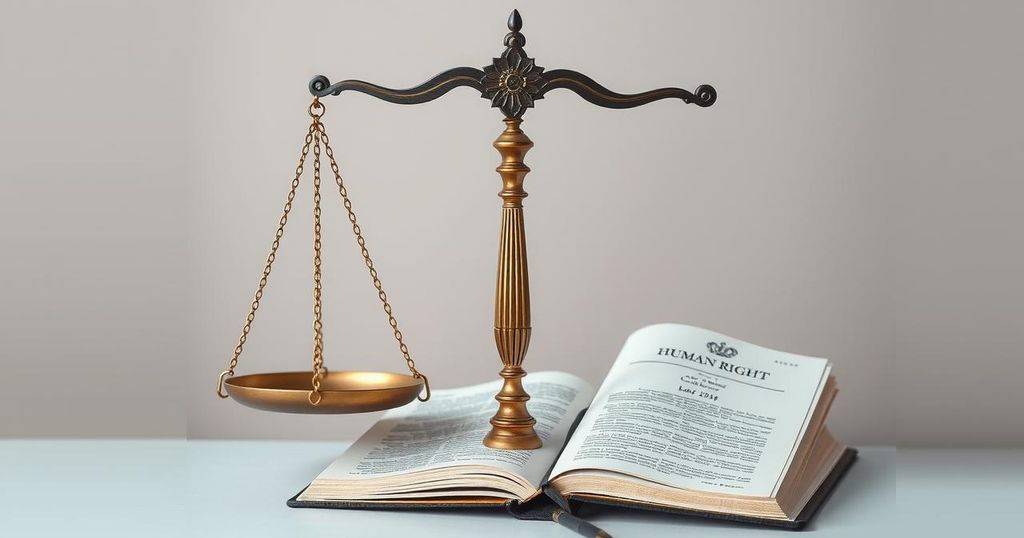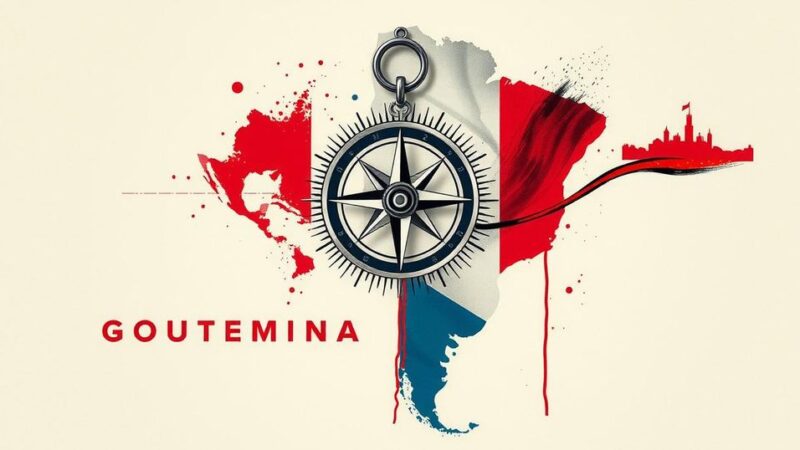Moroccan opposition intensifies calls for King Mohammed VI to pardon Mohamed Ziane, a former Human Rights Minister sentenced to five years in prison. Rights groups criticize the charges as politically motivated, linked to Ziane’s defense of dissenters. The case highlights ongoing issues of political repression and freedom of expression in Morocco amid broader calls for pardons for political prisoners.
Morocco’s political opposition is intensifying its calls for King Mohammed VI to grant a royal pardon to Mohamed Ziane, an 81-year-old former Human Rights Minister. Currently serving a five-year prison sentence on corruption and embezzlement charges, Ziane’s case is perceived by many rights organizations as being politically motivated. The Justice and Development Party (PJD), an opposition group, has publicly urged the monarch to consider Ziane’s situation and humanitarian concerns.
Ziane, a prominent lawyer and founder of the Moroccan Liberal Party (PML), was sentenced in 2023 amidst allegations of embezzlement during the 2015 election campaign. His son, Ali Reda Ziane, refutes the charges, asserting that the trial serves as retaliation for Ziane’s vocal defense of journalists and political activists who are critical of the government. This recent conviction adds to a previous three-year sentence related to multiple charges, including defamation and insulting public officials.
Various rights groups have condemned Ziane’s sentencing as unjust, labeling it an attempt to silence dissent. The Moroccan Association in Support of Political Prisoners has characterized the case as an effort to “humiliate and silence” Ziane, who has been a vocal critic of Morocco’s government and intelligence services. Ziane’s history includes his tenure as the Minister of Human Rights from 1995 to 1996 and his involvement in documenting human rights abuses.
The push for Ziane’s pardon is not isolated; Moroccan opposition parties have consistently advocated for royal pardons for various political dissenters, especially those involved in the 2016 Hirak Rif protests. This grassroots movement, aimed at achieving social justice and addressing economic disenfranchisement, led to the imprisonment of numerous demonstrators, including key leaders like Nasser Zefzafi, who received a 20-year sentence.
Amidst continued appeals for his release, past initiatives, such as a 2022 parliamentary amnesty proposal, have failed to yield results. King Mohammed VI maintains exclusive authority over royal pardons, typically utilizing them during national and religious celebrations. In 2022, he granted pardons to several jailed critics, including journalists. The next opportunity for such pardons will occur during Eid after Ramadan in April.
It is important to note that seeking a pardon requires detainees to formally request clemency and to pledge non-recurrence of their actions, which many activists view as an additional humiliation. Justice Minister Abdellatif Ouahbi emphasized the necessity for such requests, stating, “The detainees should request a pardon, and His Majesty the King, who is the father of all, knows the public interest and the greater good.”
Activists assert that the implications of Ziane’s case extend beyond an individual; it reflects overarching issues regarding freedom of expression in Morocco. A member of the Moroccan Association in Support of Political Prisoners remarked, “this is not just about one man […] It’s about sending a message: dissent has a price.” This viewpoint is underscored by recent crackdowns, including the sentencing of pro-Palestine activists for protesting against Morocco’s normalization with Israel.
The article focuses on the political tensions in Morocco surrounding the case of Mohamed Ziane, a former Human Rights Minister sentenced to prison on charges viewed as politically motivated. The response from opposition parties highlights broader concerns regarding dissent and the treatment of political prisoners in the country. The context of Ziane’s case is situated within ongoing struggles for human rights and freedom of speech in Morocco, particularly following significant protests and political unrest in recent years.
The Moroccan opposition continues to advocate for the release of Mohamed Ziane, indicating the political motivations behind his conviction and the broader implications for human rights in the country. The calls for a royal pardon reflect longstanding tensions between the state and those advocating for political reform and freedom of expression. As activists stress, the issue represents a wider struggle against the suppression of dissent in Morocco.
Original Source: www.newarab.com







